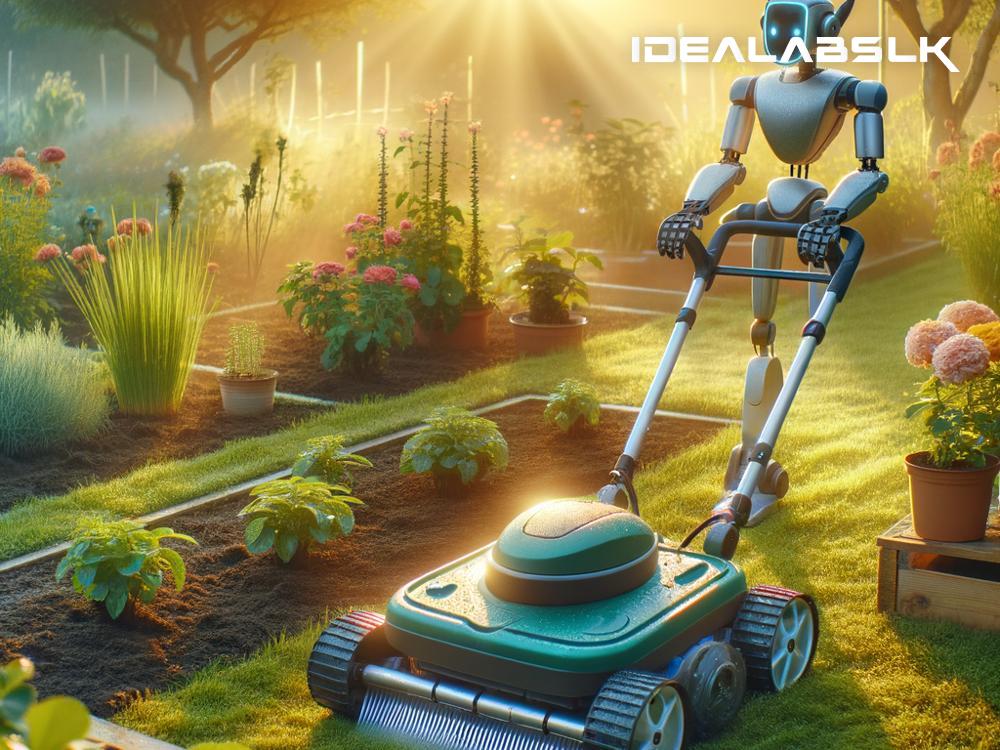Title: How AI Breathes Life into Your Garden: The Magic of Smart Gardening Tools
Imagine having a garden that almost takes care of itself, giving you more time to relax and enjoy its beauty. Sounds like a dream, right? Well, it's quickly becoming a reality, thanks to the wonders of Artificial Intelligence (AI) in smart gardening tools. Let's dive into how AI is transforming our gardens, making maintenance easier and more efficient than ever.
The Rise of Smart Gardening
In a world where technology touches every aspect of our lives, it's no surprise that gardening is getting a high-tech makeover. Smart gardening tools, equipped with AI, are reinventing the way we interact with our gardens. These tools do more than just take over routine tasks; they're capable of learning and adapting to the unique needs of your garden.
Understanding Your Garden's Needs
One of the first ways AI steps in to assist is through monitoring. Smart sensors placed around your garden collect data on soil moisture, temperature, light exposure, and more. This might sound a bit like having miniature weather stations dotting your flower beds, but the magic of AI turns this data into actionable gardening advice. By analyzing the information, AI can determine the optimal watering schedule for your plants, identify specific nutritional deficiencies, and even predict potential pest invasions before they happen.
Watering Made Wise
Watering is one area where AI significantly changes the game. Traditional sprinkler systems operate on a set schedule, often leading to over or under-watering. AI-driven systems, however, can adjust watering based on real-time data, such as soil moisture levels and weather forecasts. This not only ensures that your plants receive exactly what they need, when they need it but also conserves water, making your garden more sustainable.
The Pest Prediction Protocol
Pests can turn a thriving garden into a disaster area overnight. AI offers a proactive approach to pest control, using data gathered from your garden to predict and prevent infestations. By analyzing patterns, AI can alert you to the likelihood of a pest problem before it becomes visible. Some smart gardening systems can even dispatch drones or robotic assistants to apply targeted treatments, minimizing the use of pesticides and protecting your garden's ecosystem.
The Learning Garden
Perhaps the most fascinating aspect of AI in gardening is its ability to learn and adapt. As the system gathers more data over time, it becomes better at predicting your garden's needs. This continuous learning process means that the care your garden receives is always improving, tailored to the specific conditions of your outdoor space. It's as if your garden develops a personal gardener that knows every plant, nook, and cranny intimately.
The Benefits of AI-Driven Gardening
- Efficiency: AI ensures that resources like water and fertilizers are used optimally, reducing waste.
- Convenience: Routine tasks are handled automatically, freeing you up to focus on the more enjoyable aspects of gardening.
- Personalization: Your garden's care is customized based on real-time data, not generic guidelines.
- Sustainability: Smart gardening tools help create eco-friendly gardens by conserving resources and reducing chemical use.
Embracing the Future
While the idea of AI in the garden might seem futuristic, it's a reality that's already taking root in many homes. The beauty of smart gardening tools is that they make technology accessible and beneficial to both seasoned gardeners and those without a green thumb alike. As these tools become more widespread, we're likely to see gardens that are not only more beautiful but also more sustainable and easier to care for.
Final Thoughts
The integration of AI into gardening tools is more than just a convenience; it's a revolution in how we approach caring for our outdoor spaces. By automating maintenance and making it smarter, AI allows us to foster a closer connection with nature. We're not removed from the gardening process; instead, we're given the tools to understand and interact with our gardens in ways that were previously impossible.
As we look to the future, it's clear that AI will continue to play a significant role in shaping the practice of gardening. Whether it's through smarter watering systems, pest prediction algorithms, or data-driven plant care, the goal remains the same: to create lush, thriving gardens with a little help from our AI friends. So, embrace the smart gardening revolution, and watch as your garden blooms into a testament to the harmony between nature and technology.

